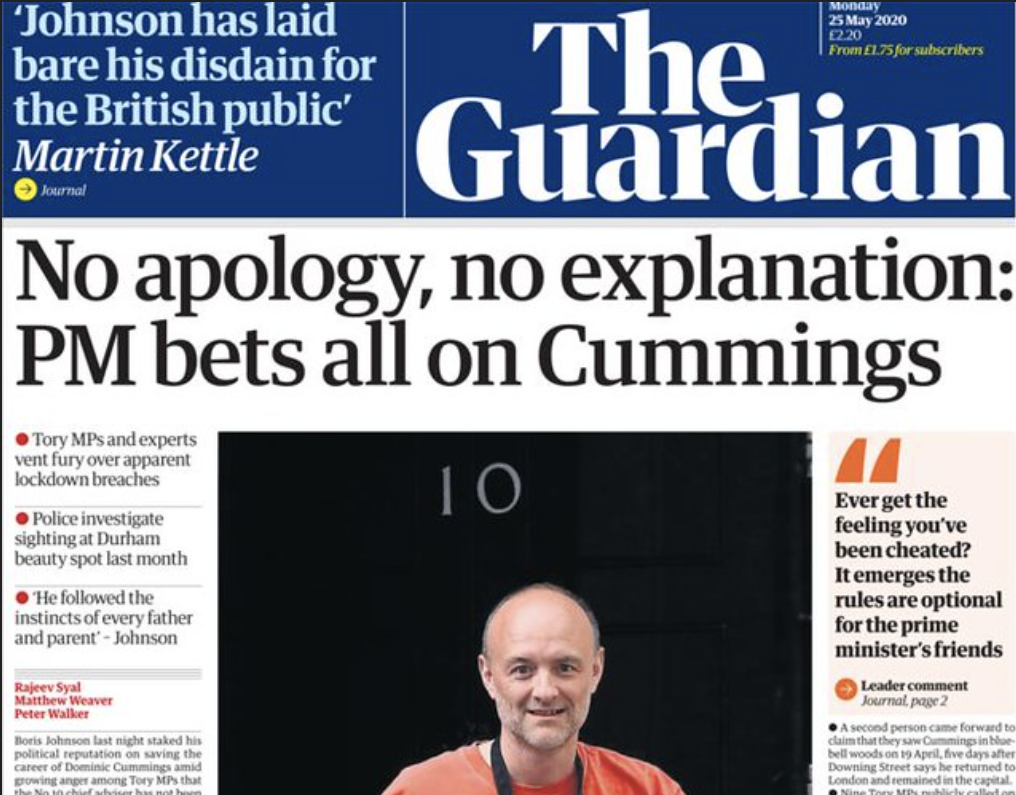The Dominic Cummings blog contains terrible advice for the UK’s EU negotiators
The media fixated on his ‘Boris didn’t know what a customs union was’ claim. But the other arguments confirm how dangerous the Dominic Cummings view of the world is.

Boris Johnson did not know what a customs union was when he signed off on the withdrawal agreement in October 2019 (and for another 11 months thereafter) – or so claims Dominic Cummings in a recent blog. Cummings duly received the headlines that he, presumably, hoped for when he decided to make the ‘revelation’ about his former boss.
Many have pointed out Cummings is an inherently unreliable witness for a range of reasons – his enormous ego, barely concealed resentment towards Johnson and the no 10 staff, and the original Leave campaign’s use of lies and misinformation for political ends.
But less remarked upon is how an example of this dishonesty was present – quite unashamedly – in the very same widely circulating blog. Cummings argued that the UK should remain formally committed to the Northern Ireland Protocol and claim to be implementing it. But then covertly refuse to do so on the ground. Cummings described this in obnoxious, and arguably racist, terms as like “the Greeks do with EU laws every day” (note, fwiw, that in 2020, i.e., during the transition period when the UK was treated legally as an EU member but without representation in the institutions, the country had the second highest number of EU infringement cases – and more than Greece).
Cummings’ strategy would have the same disastrous effect
Cummings talks in the blog on a few different occasions about rebuilding the UK’s diplomatic relations with Europe. He points out – correctly – that activating Article 16 to suspend parts of the Northern Ireland Protocol would cause “economic harm” to the UK and create a “diplomatic mess” that sees “relations with allies damaged further”. But he also advocates a harder break with EU standards as part of a more deregulatory economic model.
There are at least two problems with this approach. The first is Cummings’ claim that a better leader would be able to pursue a successful Article 16 activation – so the right ‘strongman’ would somehow magically solve all the objective policy issues he recognises. The second is that the course of events he advocates would bring about the same negative diplomatic and economic consequences he accuses Johnson of sleep walking into.
Refusing to implement the treaty on the ground would obviously have very negative consequences. The UK would be seen as an untrustworthy ally and the rule of law system internationally would be undermined.
To see how this would have wider implications, just consider any international treaty that the UK has signed with other parties and derives benefits from. If the other party refuses to implement it, the UK would argue that this is unlawful and they should uphold it, or renegotiate in good faith. If Cummings’ approach was accepted this becomes much harder. It raises the question: why should the law only apply to other states, and not to the UK itself?
Cummings also claims to support the peace process in Ireland. But his proposal could only damage it by. Meanwhile, the unspecified deregulation, which Cummings also backs in the blog, could lead to retaliatory action (e.g. tariffs on UK goods) if it breached the “level playing field” rules in the UK-EU trade agreement.
So, this latest intervention at least summarises Cummings’ vision rather well: deregulation in standards and market fundamentalism at home combined with chaos and law-breaking in UK trade and diplomatic relations.
This is an unappealing politics. We should think twice before looking to him for advice.
November 17, 2021
Brexit Spotlight is run by Another Europe Is Possible. You can support this work by joining us today. The website is a resource to encourage debate and discussion. Published opinions do not necessarily represent those of Another Europe.





